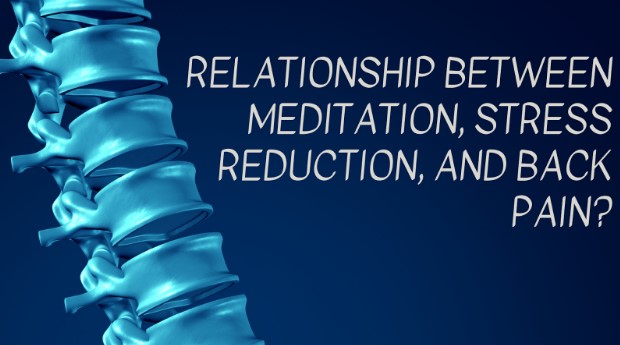
Stress Reduction
In our fast-paced, modern world, stress has become an unwelcome companion for many of us. It’s no secret that stress can take a toll on both our mental and physical well-being. One of the common physical manifestations of stress is back pain, particularly lower back pain. Yet, there’s a powerful and natural tool that can help reduce both stress and back pain meditation.
In this article, we’ll explore the connection between meditation, stress relief, and back pain. We’ll also see how meditation, along with healthy choices, can improve your well-being and introduce you to the idea of the best pillow for lower back pain.
Understanding Stress’s Impact on the Body
To grasp the connection between stress and back pain, think about how stress affects your body. When you’re stressed, your body gears up for action by releasing hormones like cortisol and adrenaline, putting your muscles on edge and raising your blood pressure. Over time, constant stress can make your muscles tight, cause swelling, and even make your posture change, all of which can lead to back pain.
Choosing the Right Pillow
When searching for the best pillow for lower back pain, consider the following factors,
- Support: Look for a pillow that offers excellent support to the natural curve of your spine, especially in the lumbar region.
- Material: Memory foam pillows are often recommended for back pain as they conform to your body shape and provide proper support.
- Adjustability: Some pillows allow you to customize their firmness and thickness, enabling you to find the perfect fit for your needs.
- Sleep Position: Consider your preferred sleep position. Side sleepers may need different support than back or stomach sleepers.
- Quality: Investing in a high-quality pillow can make a significant difference in your comfort and back pain relief.
The Role of Stress in Lower Back Pain
The lower back is particularly vulnerable to the effects of stress. It’s a complex network of muscles, ligaments, and bones, all working together to support your body. When stress causes muscle tension and inflammation, it can impact the lower back. This can lead to conditions like muscle spasms, sciatica, and chronic lower back pain.
How Meditation Works
Meditation is an ancient technique where you concentrate your mind on something to find mental clarity and calmness. People have done it for ages to feel less stressed and better. When you meditate, it helps your body relax, which calms down the “fight or flight” reaction caused by stress.
Stress Reduction through Meditation
Meditation provides a powerful tool to combat stress and ease back pain. Here’s how it helps:
- Muscle Relaxation: Meditation promotes muscle relaxation by reducing tension in the body. As you meditate, you become more aware of muscle tightness and learn to release it.
- Cortisol Reduction: Meditation shows a reduction in cortisol levels, the stress hormone. This decrease in cortisol can help your body return to a state of balance and reduce inflammation.
- Enhanced Mood: Regular meditation can boost your mood and reduce symptoms of anxiety and depression, which connect to chronic stress.
- Improved Sleep: Many people struggling with stress also have sleep problems. Meditation can improve the quality of your sleep, helping your body recover and heal.
- Mind-Body Connection: Meditation makes your mind and body work better together. This helps you understand and handle the physical signs of stress, like back pain, more.
The Best Pillow for Lower Back Pain
Getting a good night’s sleep is essential for managing stress and reducing back pain. Not getting enough sleep can make your muscles tight and uncomfortable. So, it’s crucial to get the right sleep gear, like pillows, to help you sleep better.
Choosing the Right Meditation Technique
Mindfulness Meditation
Mindfulness meditation is one of the most popular forms of meditation for stress reduction. It involves paying focused attention to the present moment without judgment. By acknowledging your thoughts and feelings as they arise, you can better manage stress and its effects on your body.
Progressive Muscle Relaxation
Progressive muscle relaxation is a meditation technique that focuses on releasing muscle tension. It means you tighten and then loosen various muscle groups in your body. This helps you notice tense areas and learn how to relax them.
Guided Imagery
Guided imagery meditation involves visualizing peaceful and calming scenes or situations. This technique can transport your mind away from stressors, offering relief and relaxation.
Yoga and Tai Chi
Although yoga and tai chi aren’t the usual meditation, they include meditation-like parts, like controlled breathing and paying attention, and also help you stay fit. These activities can help reduce stress and improve flexibility and strength, reducing the risk of back pain.
Combining Meditation and Sleep for Back Pain Relief
Incorporating meditation into your evening routine can prepare both your mind and body for a restful night’s sleep. Here’s a simple meditation practice you can try before bed:
- Find a quiet, well-lit space where no one will disturb you.
- Sit or lie down in a comfortable position.
- Close your eyes and take a few deep breaths to relax.
- Focus your attention on your breath as it enters and leaves your body.
- If your mind wanders, bring your focus back to your breath.
- Continue this practice for 10-15 minutes or until you feel completely relaxed.
Conclusion
The relationship between meditation, stress reduction, and back pain is a profound one. Stress can cause a lot of trouble for our bodies, and one of the usual things it does is give us a sore lower back. But, meditation can help. It’s a natural and effective way to deal with both stress and back pain.
If you practice meditation every day and use the right pillow for your lower back, you can move toward a healthier, pain-free life. With the right tools and mindset, you can reduce stress, reduce back pain, and improve your quality of life. So, take a deep breath, start your meditation practice today, and let the healing begin.
Frequently Asked Questions
How does stress contribute to back pain, and how can meditation help reduce it?
This question addresses the link between stress and back pain, highlighting how stress can lead to back pain and how meditation can alleviate this connection.
What types of meditation techniques are most effective for stress reduction and back pain relief?
This question explores the various meditation techniques and practices that individuals can employ to effectively reduce stress and alleviate back pain.
Are there specific lifestyle changes or habits that complement meditation in managing back pain?
This question delves into the role of lifestyle choices, like sleep quality and ergonomic considerations, in conjunction with meditation for managing and preventing back pain.
What characteristics should I look for in a pillow to support lower back pain and enhance the benefits of meditation?
This question helps readers understand how choosing the right pillow can complement their meditation practice and contribute to lower back pain relief.








